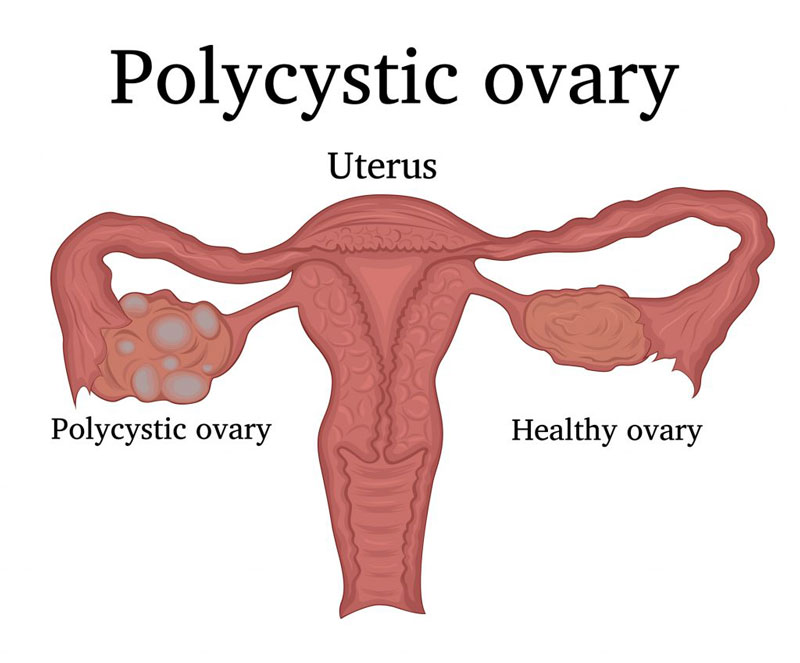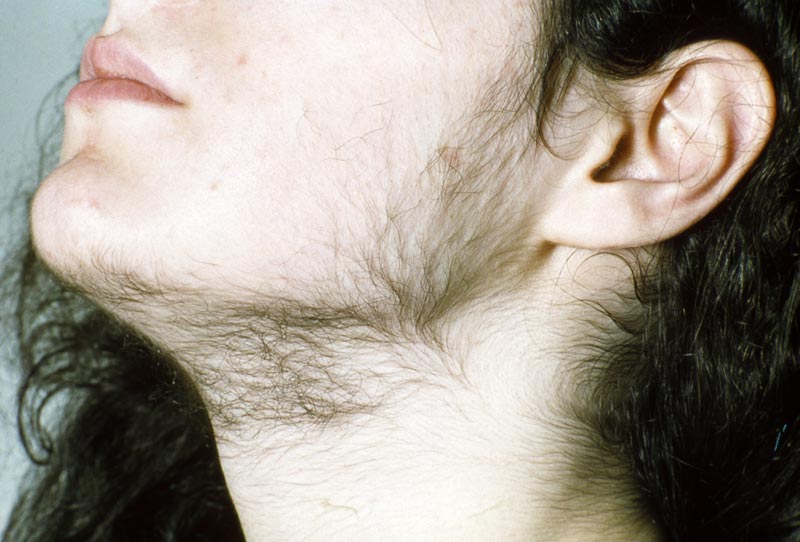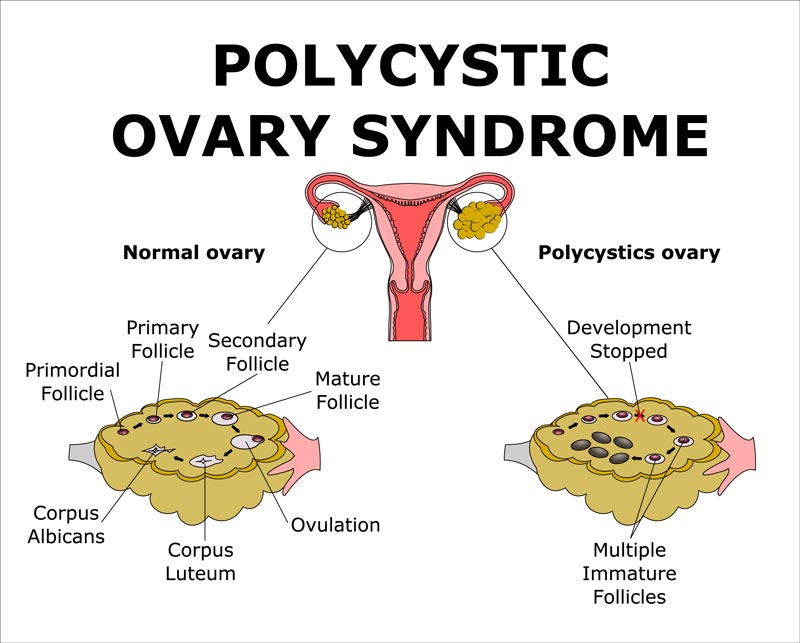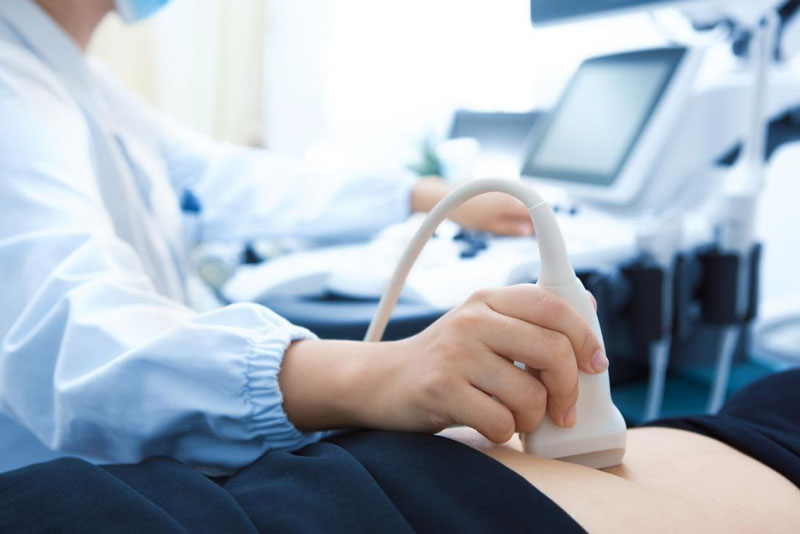Everything You Should Know About Polycystic Ovary Syndrome

Are you one of those girls or women who is suffering from obesity? Are you the one who often has absent or irregular menstrual periods? Do your mood swings frequently and mostly suffer from unbearable pelvic pain, acne, oily skin, or dandruff? If yes then don’t ignore these symptoms as they want to make you aware of your hormonal disorder. This the time to consult a gynaecologist as you may be suffering from PCOS. But why does this happens and did every woman undergo this problem of hormonal imbalance?
We know you have so many queries regarding PCOS, irregular periods and your extra growing fat around your waist but don’t worry we will clear everything about PCOS, its symptoms, causes, how it is treated and how you can manage it naturally with your diet and some regular exercises today in our health blog.
So ladies, stay connected and start reading!!
What is Polycystic Ovary Syndrome?
Polycystic Ovary Syndrome or simply PCOS is a condition of hormonal disorder that is commonly detected or diagnosed in women in the childbearing years or reproductive age. It develops multiple hormone levels which later affect the body functioning of women. Women with PCOS may have infrequent or extended menstrual periods or excess male hormone level, which is known as androgen. The ovaries produce an abnormal amount of androgens that may develop numerous small amount of fluid (cyst/follicles) and fail to regularly release eggs.

PCOS describes the numerous small cysts that form in the ovaries. But in some women with this disorder does not have Ovarian cysts, while some women without this disorder do develop Ovarian cysts. Women suffering from PCOS have hormonal imbalance and metabolism problems that may affect their overall health and appearance of their body and sometimes it is the main cause of infertility and obesity.
Ovulation occurs when a mature egg is released from an ovary and later it can be fertilized by a male sperm. If this mature egg is not fertilized then it is sent out of the body during your menstrual cycle. Due to hormonal imbalance/disorder, this ovulation process doesn’t happen and therefore the ovaries start developing many small cysts. This can cause more problems with the menstrual cycle of a woman and it can cause many of the symptoms of PCOS.
With PCOS women typically have:
- Increased levels of androgens.
- Formation of small cysts in their ovaries known as Ovarian Cyst.
- Missed or irregular periods or monthly heavy bleeding.
PCOS can affect:

- Menstrual cycle
- Ability to have children
- Facial Appearance (Darker Skin, Facial Hairs)
- Hormones
- Heart problem
5- 10% of women ageing between 15 and 44, or during reproductive age, have PCOS. It is most common in women of ages between the 20s and 30s.
Women of all nationalities and ethnicities are at risk of PCOS. And the risk of PCOS gets increases when you have obesity or if you have a family history with PCOS.
What Causes of PCOS?
On a serious note, the main cause of PCOS is still unknown. But most health experts have given several factors such as genetic and obesity. The main problem with PCOS is a hormonal imbalance. Many women with PCOS have insulin resistance. In this case, the body cannot use insulin well. Insulin levels increase up in the body and may cause higher androgen levels. Obesity is another reason for increased levels of insulin and makes PCOS symptoms worse.

High androgen levels can lead to:
- Acne/Skin patches.
- Further Weight gain.
- Excessive hair growth.
- Darkness can be seen at intimate portions of the body.
- Problems with ovulation/fertility.
Also Read: Pcos & Obesity Both Are Related & Common For Unmarried Women
Symptoms of PCOS
The symptoms of PCOS can vary from woman to woman:
- Occasional, absent, or irregular periods.
- Cysts on the ovaries.
- Acne, blackheads, oily skin, and dandruff on the scalp
- Weight gain or obesity, usually with extra weight around the waist.
- Infertility because of not ovulating.

- Growth of hairs increases on face, chest, stomach, back, thumbs, or legs.
- Excessive hair fall, baldness or thinning of hair.
- Skin patches or over pigmentation of skin, excess strips of skin in the armpits or neck area.
- Pelvic pain.
- Anxiety or depression.
- Darkening of the specific areas of the body such as the neck, arms, breasts, or thighs that are thick and dark brown or black.
How You Can Test PCOS?
There is no specific test to diagnose PCOS. But you can detect it by symptoms mention above and when you further consult gynaecologist then the following test will be done:
First, your medical history will be checked: In this, your doctor will ask about your menstrual periods, weight changes and other symptoms.
Then you will go through physical examination: Measurement of blood pressure, Body mass index (BMI), Waist Size is done and increased hair growth is done.

Ultrasound of the pelvic area to examine ovaries for cysts and check the endometrium.
Pelvic exam: Your doctor might want to check to see if your ovaries are enlarged or swollen by the increased number of small cysts.
Blood tests for checking androgen hormone and glucose levels in your blood.
How is PCOS Treated?
Treatment for PCOS is often done with medication. This can’t cure PCOS, but it helps reduce symptoms and prevent some health problems.
Some treatments for PCOS include:
- You can modify your lifestyle. Many women with PCOS are overweight or obese, which can cause health problems they can manage PCOS by eating healthy and exercising to keep your weight at a healthy level.
- Limiting processed foods and foods with added sugars.
- Adding more whole-grain products, fruits, vegetables, and lean meats to your diet. This helps to lower blood glucose levels, improve the use of insulin and normalize hormone levels in your body. Even a 10 per cent loss in body weight can restore a normal period and make your cycle more regular.
How You Can Manage PCOS by Diet & Exercise?
Following lifestyle and diet adjustments can help you in managing PCOS symptoms to an extent:
- Generally take small meals without skipping it.
- Drink a lot of water around 8-10 glasses.

- Try to consume 2-3 servings of fruits and vegetables every day.
- Give preference to home-cooked meals.
- Avoid fried, packaged and processed foods
- Foods with the high glycemic index
Suggested exercises:
- Work out at least 5 times every week for at least 30 minutes.
- Running, swimming, yoga.
- Strengthening exercises.

Concluding here but immediately consult your doctor if you’ve skipped periods or seeing any other symptom of PCOS like hair growth on your face or body. If you can’t manage your PCOS by own then, medicines are an option if lifestyle changes don’t work.
Also Read: Nutrition Tips For Managing Pcos








